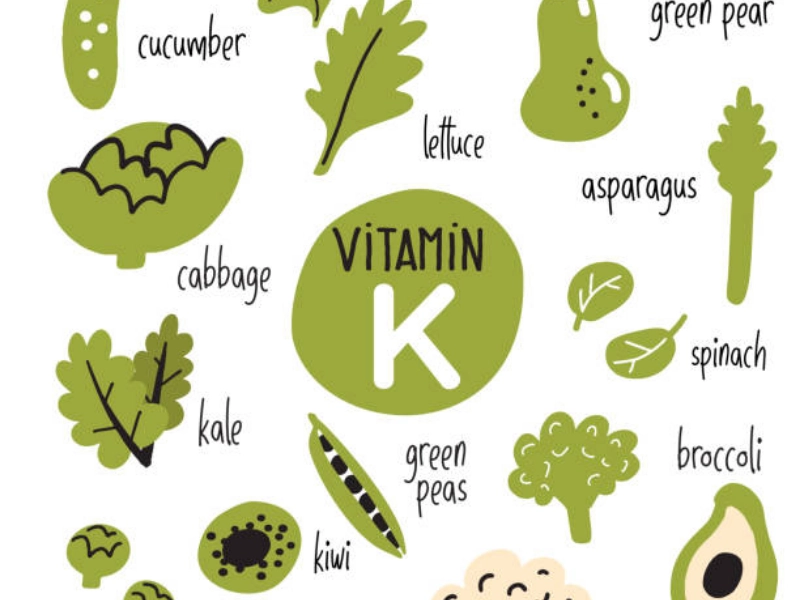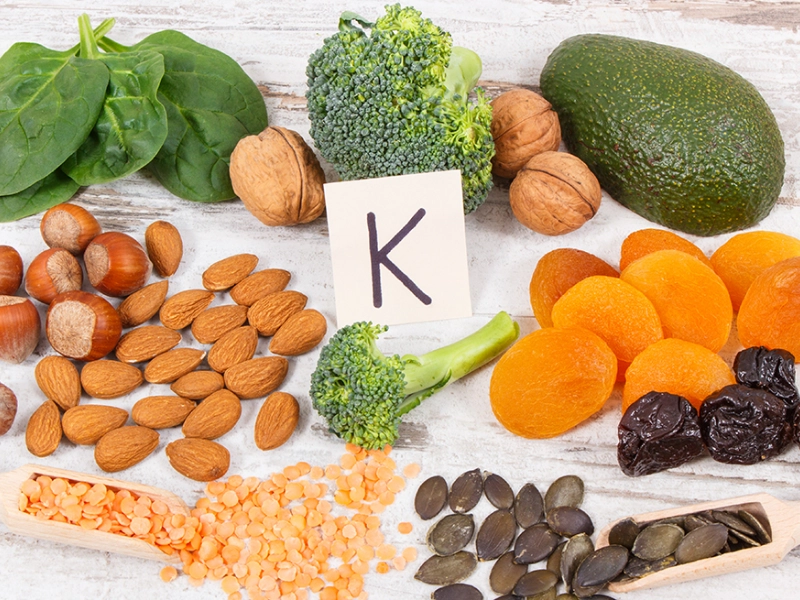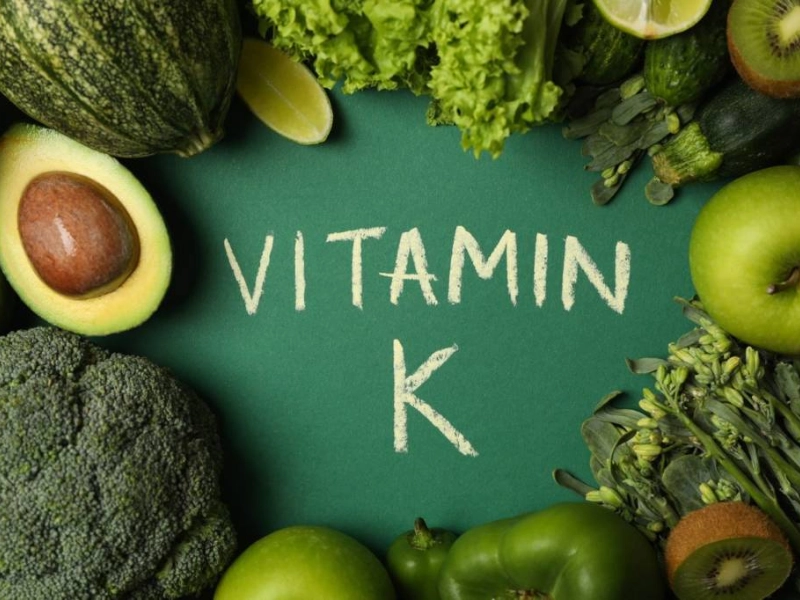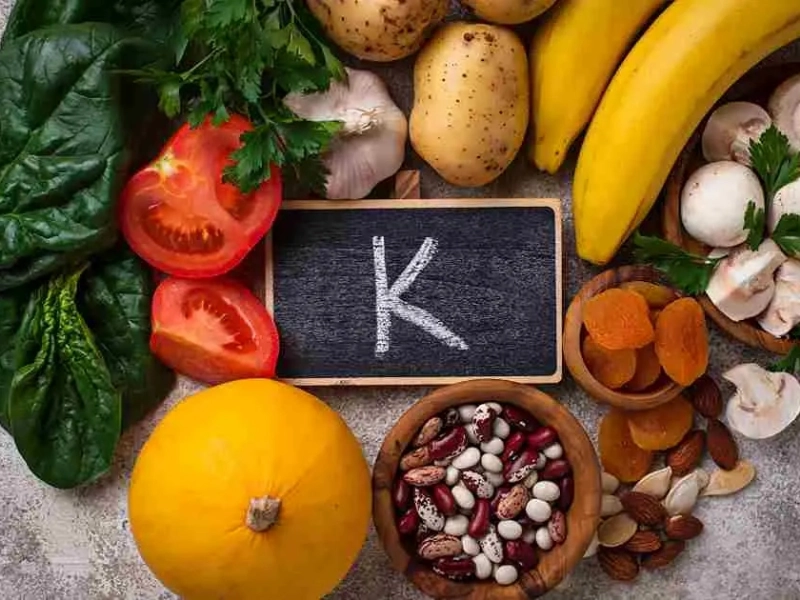Maintaining strong vision becomes much more crucial as we become older. Vitamin K is sometimes disregarded even if many people concentrate on minerals like vitamin A and omega-3 fatty acids for eye health. Although this vital vitamin affects blood coagulation and bone health among other body processes, it also greatly affects eye health. This post will go over how vitamin K promotes eyesight, its function in avoiding eye illnesses, dietary sources, and doable advice on including it into your diet.
 Found in two primary forms, K1 (phylloquinone) and K2 (menaquinone), vitamin K is a fat-soluble vitamin. Though both forms are essential for many body processes, K2 has been demonstrated to offer particular advantages for eye health. Studies show that vitamin K helps control calcium in the body, which is vital for preserving normal tissues including those found in the eyes. Conditions include glaucoma and cataract development in the eye can result from calcium buildup there. Ensuring sufficient vitamin K levels will help you avoid these problems and support improved eye health as you age.
Found in two primary forms, K1 (phylloquinone) and K2 (menaquinone), vitamin K is a fat-soluble vitamin. Though both forms are essential for many body processes, K2 has been demonstrated to offer particular advantages for eye health. Studies show that vitamin K helps control calcium in the body, which is vital for preserving normal tissues including those found in the eyes. Conditions include glaucoma and cataract development in the eye can result from calcium buildup there. Ensuring sufficient vitamin K levels will help you avoid these problems and support improved eye health as you age.
 Our risk of age-related eye illnesses rises dramatically as we become older. Vision can be seriously impaired by disorders including cataracts, macular degeneration, and glaucoma. Research on vitamin K have indicated that it might be preventive against some disorders. For example, vitamin K assists the body to lower oxidative stress and inflammation, both of which are contributing elements to the development of eye illnesses. Including foods high in vitamin K might help you reduce your chances of certain diseases and preserve better vision.
Our risk of age-related eye illnesses rises dramatically as we become older. Vision can be seriously impaired by disorders including cataracts, macular degeneration, and glaucoma. Research on vitamin K have indicated that it might be preventive against some disorders. For example, vitamin K assists the body to lower oxidative stress and inflammation, both of which are contributing elements to the development of eye illnesses. Including foods high in vitamin K might help you reduce your chances of certain diseases and preserve better vision.
 Since they supply the required nutrients and oxygen to the eye tissues, healthy blood vessels are crucial for best eye performance. Since it controls calcium levels and stops calcification, vitamin K is absolutely essential for preserving the integrity of blood vessels. Important for eye health, this control guarantees that blood vessels stay flexible and functional. Retinal vein occlusion and diabetic retinopathy are among the several eye issues that can result from inadequate blood flow. Through enough vitamin K intake, you can maintain blood vessel health and therefore improve vision and general eye function.
Since they supply the required nutrients and oxygen to the eye tissues, healthy blood vessels are crucial for best eye performance. Since it controls calcium levels and stops calcification, vitamin K is absolutely essential for preserving the integrity of blood vessels. Important for eye health, this control guarantees that blood vessels stay flexible and functional. Retinal vein occlusion and diabetic retinopathy are among the several eye issues that can result from inadequate blood flow. Through enough vitamin K intake, you can maintain blood vessel health and therefore improve vision and general eye function.
 Given many foods are high in this vital ingredient, including vitamin K into your diet is really simple. Among the better sources of vitamin K1 are green leafy vegetables. Excellent choices are foods including broccoli, spinach, and kale. For people seeking vitamin K2, fermented foods such cheese, natto, and several varieties of yogurt are excellent choices. Meat including chicken and beef liver also provide vitamin K2. Including a range of these items in your meals can help you to maintain eye health and easily satisfy your daily vitamin K needs.
Given many foods are high in this vital ingredient, including vitamin K into your diet is really simple. Among the better sources of vitamin K1 are green leafy vegetables. Excellent choices are foods including broccoli, spinach, and kale. For people seeking vitamin K2, fermented foods such cheese, natto, and several varieties of yogurt are excellent choices. Meat including chicken and beef liver also provide vitamin K2. Including a range of these items in your meals can help you to maintain eye health and easily satisfy your daily vitamin K needs.
Think about some doable advice for your daily diet to be sure you're obtaining adequate vitamin K. Start with including leafy greens into your stir-fries, smoothies, or salads. Olive or avocado oil dressing helps to improve the absorption of fat-soluble vitamins including K. Try also including fermented foods several times a week into your meals. If you enjoy cooking, think about experimenting with fresh dishes including foods high in vitamin K. Your vitamin K intake will be much increased by small modifications like substituting whole grain for normal pasta or include a side dish of steamed broccoli.
Although eye health depends on vitamin K, a balanced diet including many other nutrients is absolutely vital. Along with omega-3 fatty acids, vitamins A, C, and E also are quite important for maintaining vision and general wellness. A well-rounded diet high in fruits, vegetables, whole grains, lean proteins, and healthy fats will supply the essential nutrients to guard your eyes from age-related degeneration. These nutrients combined with enough vitamin K will provide a complete strategy for preserving your vision as you get older.
Apart from a good diet, frequent eye examinations are crucial for maintaining eye health as one ages. Early symptoms of age-related disorders can be found by eye care experts, who also advise suitable interventions. Moreover, changing your lifestyle can improve your eye condition even more by means of smoking cessation, stress management, and UV ray protection of your eyes. Combining a nutrient-dense diet with preventative health actions will help you greatly preserve clarity as you age and support your eyesight. Particularly as we age, vitamin K is a critical component that helps to maintain eye health in great measure. Understanding its relevance in preventing age-related eye illnesses, preserving blood vessel health, and including foods high in vitamin K into your diet will help you to improve vision and general well-being. Remember to keep a balanced diet and give frequent eye check-ups top priority so your eyes stay healthy and brilliant all your life.